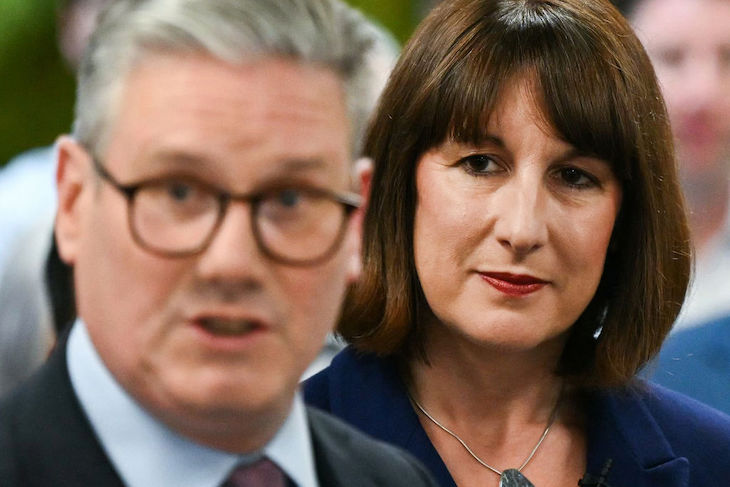This is hardly how 2024 was supposed to end for Labour. Free from the shackles of ‘14 years of Tory misrule’, the economy was supposed to take off. ‘Growth, growth, growth,’ Keir Starmer told us, a little unconvincingly, were going to be the government’s three main priorities. Indeed, Britain was going to tear away as the fastest-growing economy in the G7 – although he never offered us any explanation as to why this would be the case, still less which of his policies was going to achieve it.
This morning’s revised GDP figures from the Office for National Statistics (ONS) reaffirm just how big a failure the government’s economic policies have so far proven to be. The figures show zero growth in the third quarter, while GDP per head shrank by 0.2 per cent. Figures for October show that the economy contracted by 0.1 per cent, and there is little to suggest that the news will be better for the last two months of the year.
Nor, to judge by a CBI survey this morning, are things going to look up in the first three months of 2025. There are still three months to go before the rise in employers’ National Insurance comes into effect, but already it appears to be having a serious effect on the outlook for employment. The survey shows that large majorities of businesses are expecting headcount to fall rather than rise. In consumer services, which employ a lot of part-time workers, the retraction is expected to be especially acute, with a net balance of 49 per cent of businesses expecting employment levels to fall. This should not be too surprising, given that the lowering of the threshold for employers’ National Insurance alone has added £600 to the cost of employing a part-time worker on £10,000 a year.
But it gets worse. A majority of 24 per cent of businesses are expecting overall business levels to fall, according to the CBI. Yet there are few signs of falling business volumes leading to lower prices. On the contrary, a majority of 20 per cent of firms expect to be raising prices in the next three months. In consumer services it is 42 per cent.
From what had been a promising recovery in the spring, Starmer and Rachel Reeves look as if they may well have conjured a recession out of thin air. At least the Conservatives had the excuse of Covid followed by the invasion of Ukraine for the inflation-ridden horror show of their latter years in office. But what excuse does Labour have for returning the economy to stagnation or worse? There is no global crisis or factors beyond the party’s control. It has simply talked the economy down, threatened every tax rise under the sun – and then enacted a few of them. As for its measures supposed to promote growth – which so far have been largely limited to planning reforms – they are rather missing the point: there are many reasons other than the planning system for why housebuilding is delayed. The promised ‘green jobs’ are nowhere to be seen – although dirty old manufacturing jobs very much are leaving our shores.
But employers’ National Insurance is already looking like the biggest disaster of a policy. Ironically, Reeves had intended cuts to pensions tax relief to do most of the heavy lifting in the Budget, but seems to have pulled back when she realised that, thanks to how some public sector pension schemes are constructed, the change would mean a tax charge appearing on the pay slips of senior public sector workers. That she shied away from that and chose instead to try to raise money through a ‘jobs tax’ (an expression previously used by Reeves herself) just shows how warped her priorities are. Her focus, and that of the government as a whole, is on promoting the short-term interests of public sector workers at the expense of economic growth.







Comments